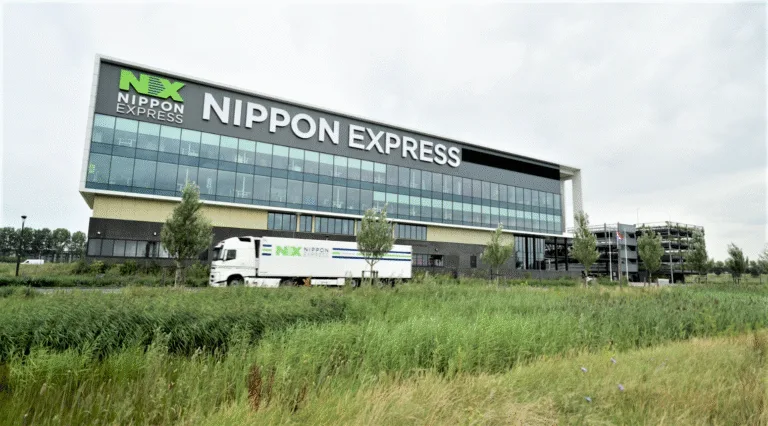At a time when global logistics are under unprecedented strain—from conflict zones to labour shortages—Nippon Express Europe is stepping forward with a robust strategic vision that positions Europe as a central pillar of growth and innovation. Despite the headwinds facing the regional economy, Nippon Express views the region as a vital growth pillar in its global operations.
“Of course, the situation in Europe is not ideal,” Shinichi Kakiyama, President and CEO of Nippon Express Europe, acknowledged, “but we have five regions—Japan, East Asia, South Asia and Oceania, the Americas, and Europe. Without Japan, the revenue from these regions is quite important for the NX Group. Europe, in particular, is a growth pillar.”
That growth is not merely aspirational—it’s structural. Nippon Express has made targeted acquisitions in Europe to solidify its presence. One standout move was the acquisition of cargo-partner, a logistics company with a strong foothold in forwarding between Asia and Central and Eastern Europe.
“cargo-partner is very strong when it comes to international forwarding from Asia to Central Eastern Europe,” Kakiyama said. “Now, thanks to air transport from Hong Kong, for example, cargo-partner is very strong, and NX and cargo-partner together, we became number one forwarder. Also, in the international forwarders’ ranking, we are now not far from being number five. That’s thanks to the synergies.”
READ MORE: New sustainable facility for Nippon Express inaugurated at Brussels Airport
Innovation and automation
As logistics companies across the globe grapple with labour shortages—particularly in aging societies like Japan—Nippon Express is investing in advanced technologies, but with a human-centred twist.
“We already started investments in venture capital funds, where we also co-create startups,” said Kakiyama. “We’ve already created a lot of startups, especially when it comes to digital transformation and sustainability.”
One particularly standout initiative is the use of robotics to support workers with disabilities. “We use technologies, robots, to support people with disabilities so that they can also work in warehouses,” Kakiyama revealed. “That’s quite a unique thing that makes headquarters. We are trying to expand that idea.”
Such inclusive innovation underscores a deeper philosophy: technology is not just a tool for efficiency but a gateway to greater workforce participation. “It’s not just for labor or innovation—it’s supporting, bringing in more workers, opening up opportunities,” he emphasized.
Automation projects are also being piloted across Europe, particularly in the Netherlands. “A lot of those projects are still in the test phase,” he noted, “but we try, by using those technologies, to solve the problem of labor shortage and also to increase efficiency.”
Logistics in a conflict zone
Among the most urgent and humanitarian aspects of Nippon Express’s work is its role in supporting logistics in and around Ukraine, a region still reeling from war. The company’s involvement began with an existing relationship between cargo-partner and Ukrainian firm Formag, which was interrupted by Russia’s invasion.
“Due to security reasons, these activities had to be stopped,” Kakiyama said. “But now, our NX Nippon Express Poland office has supported Ukraine with the recovery.”
That support has gone beyond mere logistics. “We as a group, NX Group, also concluded an agreement with Formag— a Cooperation Agreement. We try, all of us together—NX, Formag, and cargo-partner—to unify our forces and use our common know-how and services to make sure we can provide safe end-to-end solutions.”
Safety remains paramount, especially when operating near conflict zones. “There’s a lack of information and quite a lot of security risks,” Kakiyama admitted. “Our policy is that security or safety must come first. We try to use the network we already have to collect as much information as possible. If there’s one route where we see it is too risky, we try to find another route.”
READ MORE: Nippon Express’ SE Asia road service just got a whole lot easier
M&A as a global strategy
As part of its long-range strategic vision, Nippon Express is determined to become a majority international business by 2037. “Our goal until 2037 is to make sure that the revenue that we generate outside of Japan is more than 50 percent,” Kakiyama said. “This means we will have to focus on expanding our business outside of Japan.”
Mergers and acquisitions are central to achieving that goal. “Product M&A is a very effective tool,” he stated. “It allows us to get access to clients that we don’t have yet or services that we cannot offer yet.”
Europe remains at the heart of this strategy. “Europe is the region we are most focusing on at the moment,” he concluded. “That’s why I said before that NX Europe is a very central region for us.”



